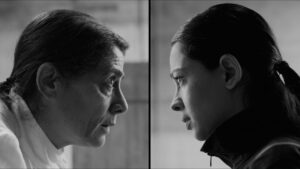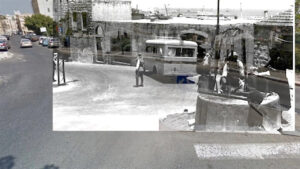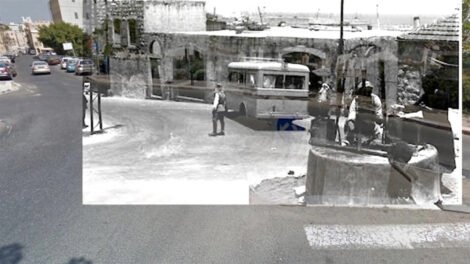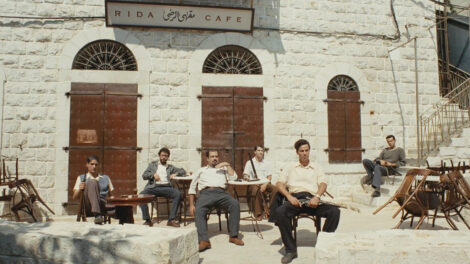CINEMAS OF LIBERATION: PALESTINIAN FILM SERIES AT LANDIS CINEMA
BY EMMA SYLVESTER
Amid a charged political climate, the department of Film and Media Studies has been showcasing the work of Palestinian filmmakers in a Palestinian Film Series cosponsored by various other academic departments and organizations on campus.
These films were selected by FAMS Chair Nandini Sikand (they/she) and Visiting Instructor Drew Swedberg, who were assisted throughout the programming process by FAMS student Ari Ismail ‘26.
…We’re an institution of higher education, and it is important to have spaces of artistic, academic, and intellectual freedom where we can learn, debate, talk…
“We were very concerned about what was happening in Palestine made worse by a flood of misinformation. All of this was preceded by an ongoing narrative of erasure about Palestine and its people,” said Sikand. They explained that the film series is an attempt to address this issue. “It’s not just about Lafayette but cuts across all of higher education. Typically there is an attempt to silence any kind of discourse around Palestine, or if there is one, it privileges certain stereotypes and Islamophobia. Saeed Taji Farouky, one of the featured filmmakers, describes his work as a distinct

In Vitro
vernacular form of Palestinian cinema, like Palestine itself, defined by isolation, denial, loss, and alienation, concerned with what isn’t there. Farouky’s framing helped us curate these films — to show the holes, the absences.”
Film as an artistic genre has the power to expand beyond central narratives and broaden viewers’ scope of global issues. Sikand said that the film series was designed to create “a space of witness for what is happening currently in Palestine, the material reality of ongoing nakba (catastrophe) of the Palestinian people, and how our governments are actively enabling a genocide.”
“We’re an institution of higher education, and it is important to have spaces of artistic, academic, and intellectual freedom where we can learn, debate, talk, and showcase the work of, by, and about Palestinians who are actively resisting occupation,” she said.
The goal was to showcase the work of Palestinian filmmakers, the artistry, the wit, the brilliance, the aesthetics, and the solidarity with other struggles…
Sikand explained that Palestinian films are not shown very frequently, and estimated that the series may even be the first occasion dedicated to Palestinian films on campus.
“You’re not hearing Palestinian voices. For several reasons, there are other people speaking for and on behalf of them,” Sikand said. Narratives of Palestine told by outside voices can be “construed in ways that are not useful or honest, that just give a one-sided picture,” they added.
The film series is intended to break the silence in an environment where “people in academic institutions are being censured for saying anything that may be construed as a defense of Palestinian liberation, another form of epistemic violence,” according to Sikand. At a time when many students on campus don’t feel seen or heard, Sikand said the series creates a space for them to have their concerns acknowledged.

Your Father Was Born 100 Years Old, and So Was the Nakba
Sikand said that some films in the series display a pre-war Gaza that looks drastically different than the area’s current state due to “ongoing onslaught, bombing, and destruction. Each film engages with the land either obliquely or directly, it is another character in the film, not just a landscape or a backdrop.
While shedding light on the current conflict in Gaza, the series also intends to showcase what it means to be Palestinian outside of the realm of violence. “The goal was to showcase the work of Palestinian filmmakers, the artistry, the wit, the brilliance, the aesthetics, and the solidarity with other struggles,” Sikand said. Films were also chosen from a range of genres created by filmmakers with varying degrees of experience, what Sikand terms “cinemas of liberation.”
Sikand hopes to continue the series into the fall semester. The FAMS department is also trying to organize an event where Palestine filmmakers can come to deliver a talk on campus.
“It’s my job as I see it, to create spaces like this, but also to be able to uplift the work and connect it to what is happening beyond our campus,” they said.



